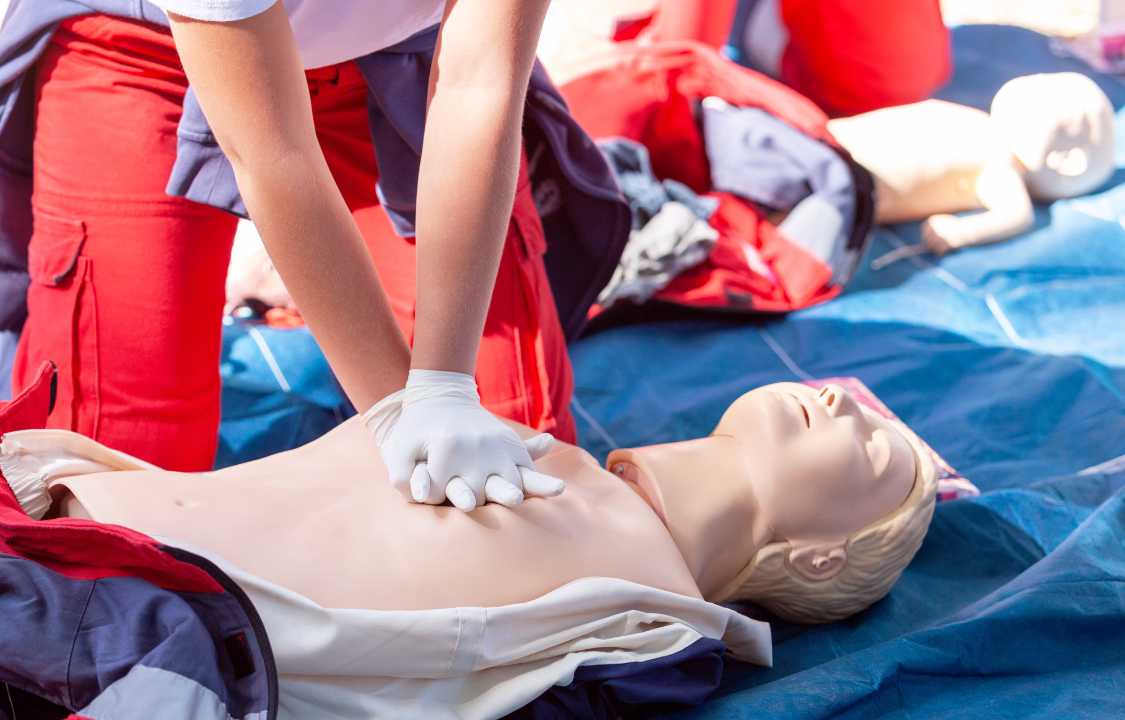Health Care, Insight
8 Reasons Why You Should Renew Your CPR Certificate
Cardiopulmonary Resuscitation (CPR) is an indispensable skill that has the potential to save lives in critical emergency situations. Regardless of whether you are a healthcare professional, an educator, a parent, or simply a concerned citizen, maintaining an up-to-date CPR certificate is a paramount responsibility. In this comprehensive article, we will delve into eight compelling reasons why you should prioritize renewing your CPR certification, exploring each one in detail.
1. Stay Updated On CPR Guidelines
CPR guidelines are not static; they continually evolve as medical research progresses. What you learned during your initial CPR certification may no longer represent the most effective technique. Regular renewal courses ensure that you are well-versed in the latest CPR guidelines and best practices. This knowledge can be a matter of life and death in an emergency situation.
CPR techniques have significantly evolved over the years. For instance, the recommended ratio of chest compressions to rescue breaths has changed. In the past, it was commonly taught as 30 chest compressions to 2 rescue breaths, but now it’s often recommended to perform continuous chest compressions without rescue breaths for untrained responders. Staying current with these guidelines is essential for providing effective CPR.
2. Improve Your Skill Proficiency
Like any skill, CPR proficiency can diminish over time if not regularly practiced. Renewing your CPR certificate involves hands-on training and practice, which helps you maintain and enhance your skills. This increased proficiency makes you more confident and effective when facing a real-life emergency.
In a CPR certification renewal course, you have the opportunity to practice on manikins and receive feedback from trained instructors. This hands-on experience is invaluable for preserving muscle memory and ensuring that your technique remains effective.
3. Increase Your Confidence
Confidence is of utmost importance during a crisis. When you have recently renewed your CPR certification, you’ll feel more self-assured in your ability to perform the necessary actions correctly. This confidence can enable you to stay calm and collected in an emergency, ensuring that you provide the best possible care to the victim.
Knowing that you have recently undergone training and practiced CPR can boost your confidence in your abilities. This assurance is essential when you’re faced with the stress and urgency of a life-or-death situation.
4. Adapt To Different Situations
Every CPR scenario is unique, with the victim’s age, condition, or circumstances varying. Renewing your CPR certification exposes you to different scenarios and teaches you how to adapt your techniques accordingly. This flexibility is vital for providing appropriate care in diverse emergency situations.
During a CPR renewal course, you’ll encounter various scenarios that mimic real-life situations. This exposure helps you develop the ability to assess the situation, adapt your CPR technique, and provide the best possible care, whether you’re dealing with an infant, child, or adult victim.
5. Legal Protection
Allowing your CPR certification to expire can have legal ramifications in some cases. If you are a healthcare professional or part of a workplace safety team, failing to renew your certification may leave you liable in the event of a CPR-related incident. Renewing your certificate helps protect you legally and ensures that you are following all necessary protocols.
In some jurisdictions, healthcare providers are legally required to maintain current CPR certification to practice. Even if it’s not a legal requirement, employers often expect their staff to stay up-to-date with CPR training to minimize liability and ensure the safety of both employees and patients.
6. Career Advancement
For those in healthcare or related professions, having an up-to-date CPR certification can be a requirement for career advancement or job retention. Many employers prioritize safety and require employees to maintain current CPR certifications. By renewing your certificate, you keep your career options open and demonstrate your commitment to safety and patient care.
In healthcare settings, certifications are often considered a fundamental requirement for employment. Whether you’re a nurse, doctor, or paramedic, keeping your CPR certification current is essential for professional development and maintaining your qualifications.
7. Be A Lifesaver
CPR is a critical intervention that can significantly increase a person’s chances of survival in a cardiac arrest or choking situation. By renewing your CPR certification, you’re actively choosing to be a potential lifesaver in your community. You never know when this kind of important life skill might be needed to save a loved one, a colleague, or a stranger.
When you renew your CPR certification, you’re not only making a commitment to your own skills but also to the well-being of those around you. Being prepared to respond in an emergency can make all the difference between life and death.
8. Set A Positive Example
Renewing your CPR certification sets a positive example for others in your community. When friends, family members, or colleagues see your commitment to staying certified, they may be inspired to do the same. This collective effort can create a safer and more prepared community, increasing the chances of survival in emergencies.
By leading by example, you can encourage others to prioritize CPR training and certification. This ripple effect can have a significant impact on the overall safety of your community, creating a network of individuals who are ready to respond effectively in emergencies.
Conclusion
Renewing your CPR certification is not merely a formality; it is a vital step in ensuring that you can provide effective and up-to-date life-saving care in emergency situations. Whether you are a healthcare professional or a concerned citizen, the reasons to renew your CPR certificate are clear: it keeps you informed, proficient, and confident, and it may be legally required for your career. Most importantly, it positions you to be a potential lifesaver in your community, making it a responsible and compassionate choice.
Don’t wait until it’s too late – renew your CPR certification today and be prepared to make a difference when it matters most. Your commitment to renewal could be the difference between life and death for someone in need.

